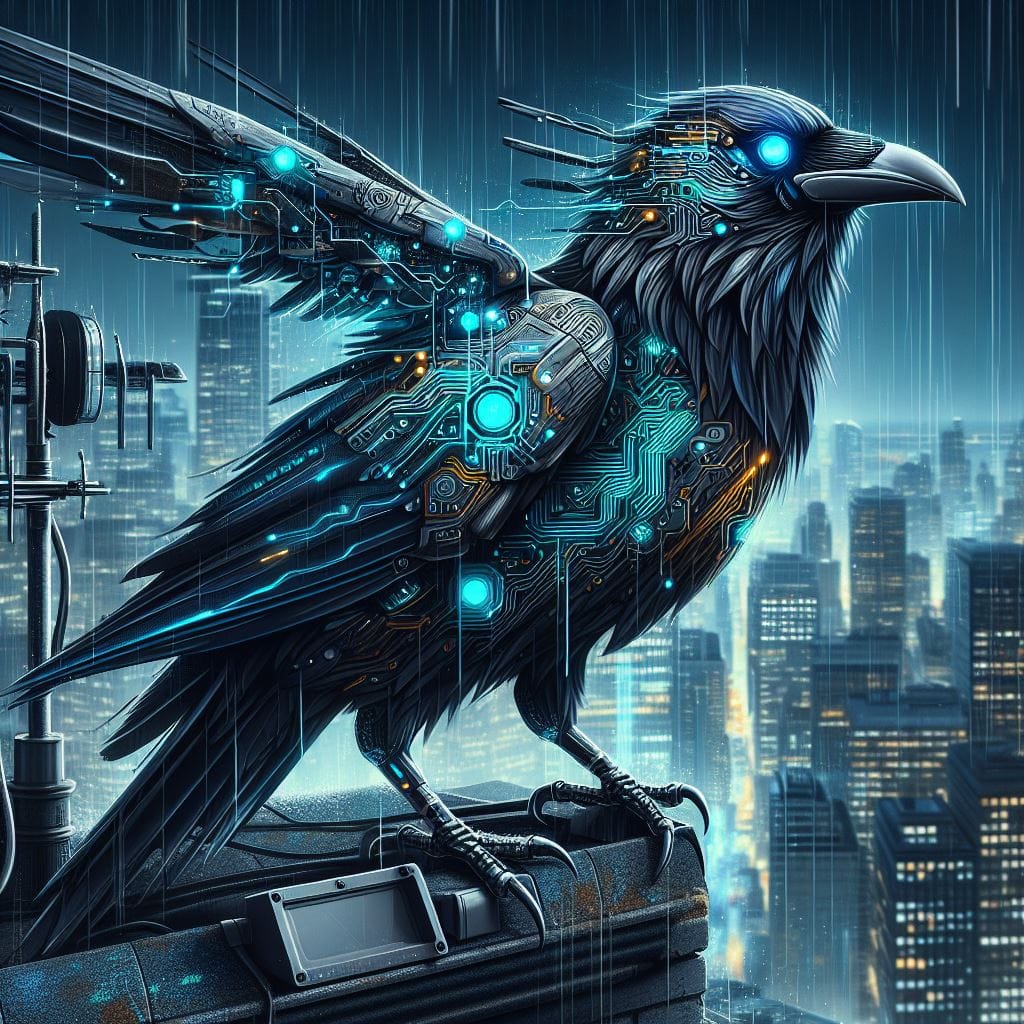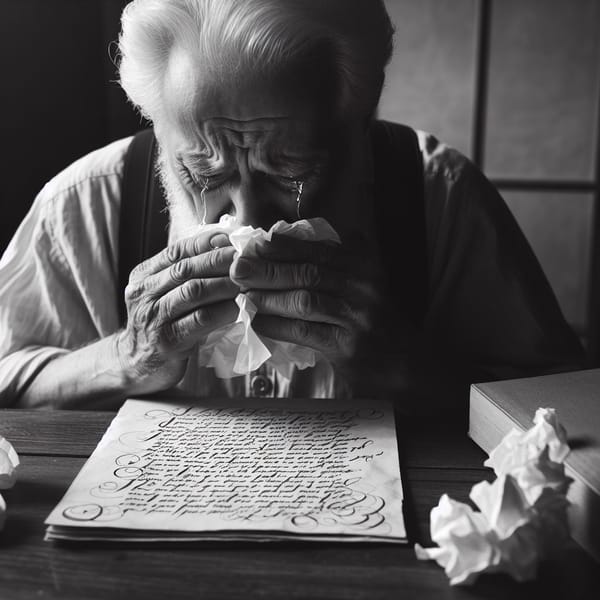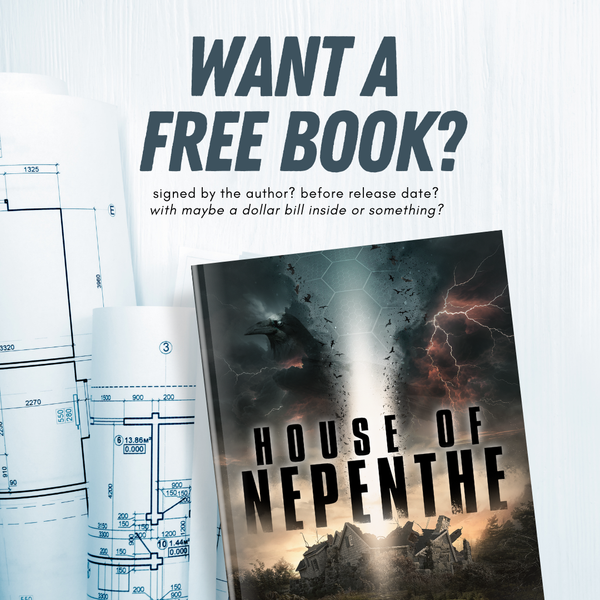Breaking Down the Raven
One of the best things about Stephen King’s On Writing is the way he breaks down scenes and tells you how they were constructed. Being told not to use adverbs is great and all, but really getting into the mind of a good writer and seeing the process behind the art can be an invaluable experience.

One of the best things about Stephen King’s On Writing is the way he breaks down scenes and tells you how they were constructed. Being told not to use adverbs is great and all, but really getting into the mind of a good writer and seeing the process behind the art can be an invaluable experience. That is why, when I stumbled upon this article, The Philosophy of Composition by Edgar Allen Poe, in which he breaks down the construction of one the greatest poems ever written, I stopped what I was doing and read it through completely. Twice.
Originally published in Graham’s Magazine in April of 1846, The Philosophy of Composition is perhaps the greatest thing I’ve ever read on the subject of writing. Poe takes The Raven and completely demystifies it. At the same time, we learn about his process, his deliberate choices, and everything else that led to the poem’s creation.
You can read the full text here: The Philosophy of Composition. Please do. It’s amazing.
If you’re pressed for time, I’ve included a few of my favorite passages below.
Starting at the End
Most writers fall into two camps: plotters and (I hate this word) pantsers. I’ve always been the latter, preferring to throw characters into a situation and see what happens. Poe, it appears, would laugh in my monkey face if he heard me say that.
Nothing is more clear than that every plot, worth the name, must be elaborated to its dénouement before any thing be attempted with the pen. It is only with the dénouement constantly in view that we can give a plot its indispensable air of consequence, or causation, by making the incidents, and especially the tone at all points, tend to the development of the intention.
A hundred people on /r/writing could write a hundred posts about how starting from the end is the only way to write a story and I wouldn’t give a damn. But if Poe is saying it, then perhaps I need to be a little open-minded.
Either history affords a thesis — or one is suggested by an incident of the day — or, at best, the author sets himself to work in the combination of striking events to form merely the basis of his narrative — designing, generally, to fill in with description, dialogue, or autorial comment, whatever crevices of fact, or action, may, from page to page, render themselves apparent.
I don’t recall ever having thought of an ending before beginning a story until very recently. And in the mother of all coincidences, it is a short story that ties heavily into The Raven. Whether or not my story evokes the same kinds of feelings as the poem, or to the same degree, at least I can say it was written in a similar process: identifying a denouement and then writing a story with the ending always in mind.
Writing is a Process
I love this quote in which Poe is deciding which work to dissect:
I select “The Raven,” as most generally known. It is my design to render it manifest that no one point in its composition is referrible either to accident or intuition — that the work proceeded, step by step, to its completion with the precision and rigid consequence of a mathematical problem.
So often, we look at success and say, “that person really got lucky” instead of “that person really understands what they’re doing.”
What’s it all about then?
After choosing a length for the poem, Poe then focuses on impression and tone.
I should be carried too far out of my immediate topic were I to demonstrate a point upon which I have repeatedly insisted, and which, with the poetical, stands not in the slightest need of demonstration — the point, I mean, that Beauty is the sole legitimate province of the poem.
[M]y next question referred to the tone of its highest manifestation — and all experience has shown that this tone is one of sadness. Beauty of whatever kind, in its supreme development, invariably excites the sensitive soul to tears. Melancholy is thus the most legitimate of all the poetical tones.
The further I read, the worse I feel about my haphazard method of story construction. Although I strive to correct and normalize tone and impression during revisions, I imagine it would cut down on a lot of work if I started writing with both of those things well in mind. Maybe the plotters have a point.
A Refrain to End All Refrains
Some choice words on the selection of “nevermore” as the poem’s refrain:
I determined to produce continuously novel effects, by the variation of the application of the refrain — the refrain itself remaining, for the most part, unvaried.
This led me at once to a single word as the best refrain.
That such a close, to have force, must be sonorous and susceptible of protracted emphasis, admitted no doubt: and these considerations inevitably led me to the long o as the most sonorous vowel, in connection with r as the most producible consonant.
The sound of the refrain being thus determined, it became necessary to select a word embodying this sound, and at the same time in the fullest possible keeping with that melancholy which I had predetermined as the tone of the poem.
Then it Gets Confusing
A lot of what Poe wrote made sense to me, until it came to the following paragraph where he talks about meter. I suppose I could look up what all of these words mean and try to decipher the text, but maybe leaving The Raven with a little mystery isn’t such a bad thing.
Of course, I pretend to no originality in either the rhythm or metre of the “Raven.” The former is trochaic — the latter is octametre acatalectic, alternating with heptameter catalectic repeated in the refrain of the fifth verse, and terminating with tetrameter catalectic. Less pedantically — the feet employed throughout (trochees) consist of a long syllable followed by a short: the first line of the stanza consists of eight of these feet — the second of seven and a half (in effect two-thirds) — the third of eight — the fourth of seven and a half — the fifth the same — the sixth three and a half. Now, each of these lines, taken individually, has been employed before, and what originality the “Raven” has, is in their combination into stanza; nothing even remotely approaching this combination has ever been attempted.
I don’t know what the hell you just said, Mr. Poe, but I like it.
The More You Know
Besides breaking down the construction of The Raven, and even going so far as to summarize the entire poem into a simplistic story, Poe also reveals a few things a reader may not have noticed. Even after numerous readings, I never properly understood the significance of the final paragraph.
It will be observed that the words, “from out my heart,” involve the first metaphorical expression in the poem. They, with the answer, “Nevermore,” dispose the mind to seek a moral in all that has been previously narrated. The reader begins now to regard the Raven as emblematical — but it is not until the very last line of the very last stanza, that the intention of making him emblematical of Mournful and Never-ending Remembrance is permitted distinctly to be seen.
In some ways, this article feels a lot like a magician revealing the secrets behind his tricks.
In Sum
If you skimmed through this post and found the passages I selected interesting, I really suggest taking the time to read Poe’s entire article. It may just open your eyes to new ideas about composition.
What really stands out to me is the confidence with which Poe approaches his work. He knows exactly how he wants to make the reader feel and he knows exactly how he’s going to do it. He selects the proper length of the piece, the impression, and the tone. He chooses words that have the most impact, he uses common structures in a new way, and he write consistently towards his ultimate goal. It’s amazing to see the scaffolding behind one of history’s most famous poems.
So after all of that, whose writing advice do I like better? Poe or Stephen King?




